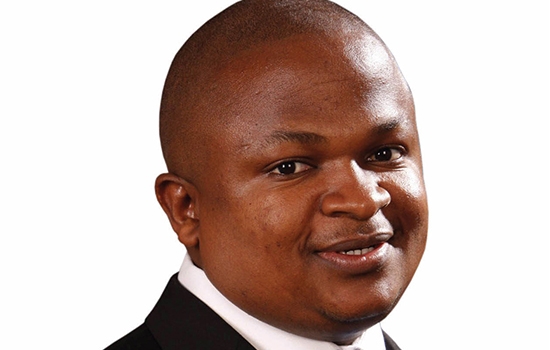By Muhereza Kyamutetera
For months now, Justine Bagyenda, the sacked Executive Director, Supervision at Bank of Uganda has been in the headlines over her unexplainable wealth.
Although both the Inspectorate of Government (IGG) and the Financial Intelligence Authority (FIA) have both formally admitted to placing Bagyenda under formal investigation a couple of months ago, the two institutions are tight-lipped about their findings thus far.
The police who have since been silent in this debacle, through their Director of Cyber and Financial Crimes, a one Mr. Kototyo William, instead decided to issue criminal summonses against editors of seven online news publishers that have fiercely reported about this case.
Apparently the summonses stem from a complaint filed by Bagyenda at police in which she claims that the stories published about her are “false, defamatory and extremely damaging” and have caused “untold mental and psychological distress” not only to her, but also family members.
However, the media houses which published Bagyenda’s vast wealth have since stood by their story and have challenged the police not to shoot the messenger but rather go on to investigate the said claims.
The journalists’ firm stand could now be vindicated by a 23rd March 2018 draft report by the Auditor General; unearthing rot at the Central Bank- particularly in Bagyenda’s Department, over the way they handled or rather mishandled the closure of several banks.
The report is a result of an audit ordered by the Parliamentary Committee on Commissions, Statutory Authorities & State Enterprises (COSASE) on 28th November 2017; pursuant to section 13 (3) of The National Audit Act 2008. The audit that sought to examine the circumstances surrounding the closures of Teefe Trust Bank, Greenland Bank, International Credit Bank, Cooperative Bank, National Bank of Commerce, Global Trust and Crane Bank. The audit itself was sparked off by an outcry from the public and Crane Bank’s shareholders over the takeover and rushed sale of Crane Bank, over what they believe was a giveaway price to dfcu Bank.
Bank of Uganda refused to cooperate especially over the closure of National Bank of Commerce and Crane Bank, pleading the sub judice rule, since the two closures are subject to court suits- although they have since been compelled to cooperate by the Speaker of Parliament.
The preliminary report that largely covers the closure of International Credit Bank Limited, Greenland Bank and Global Trust Bank shows that loans worth Shs135 billion from the three banks were sold to M/S Nile River Acquisition Company in 2007 at $5.25m (Shs8.9 billion), a price that was a mere 26 per cent of the total secured loan portfolio and 7= per cent of the total loan portfoli0- leading to a loss of Shs126billion.
This discrepancy needs to be investigated as it could provide clues to who could have benefitted from this deal.
The audit further notes that BoU failed to recoup money worth Shs6.6 billion that the three banks held in foreign banks and went on to write off the funds from six foreign accounts, despite failing to prove through any correspondences with the said banks, that they tried to collect the money, raising fears that the said money could have been recouped but it went into private pockets.
The draft report also shows that BoU failed to prove that GTB assets worth Shs23 billion were transferred to dfcu, when dfcu took over the bank in July 2014. Additionally, 25 certified land titles that had been taken over by GTB as collateral by the time it was closed in 2014 were not transferred by BoU to dfcu.
“BoU did not transfer these titles to the purchaser (dfcu) contrary to the agreement. Management (of BoU) should place caveats on all the lost titles to protect the property and ensure that the titles are recovered and handed over to dfcu,” the audit recommends.
It is interesting to note that the period after 2007, when the recoveries of the said defunct loans started, also coincides with the period in which Bagyenda, under whose docket the recoveries fell, went on a property acquisition spree.
Between 2007 and 2016 Bagyenda either single-handedly, jointly with her children or using her children as proxies acquired and or registered 14 properties- in prime locations in Kampala, Mbarara and Ntungamo Municipalities.
Rather than intimidate journalists, the police should instead use their resources to investigate the link between Bagyenda’s wealth and the findings of the Auditor General.
Whereas the Auditor General is investigating BoU, the Police should instead be looking into the sources of her wealth.
Available leaked records show that Bagyenda in 2014, held bank balances equivalent of Shs1.6 billion in her shilling and dollar accounts at DTB Bank. Between 20th January 2014 and 15th May 2017 she made additional cash and wire deposits to her dollar account totaling to $295,000 (Shs880 million).
Most of these moneys were briefly fixed and then either sent to her DTB shilling account or her other account at Barclays Bank. From her Barclays account, she wired a total of Shs693 million in 47 weekly wire (RTGS) transactions of between Shs10 million- Shs30 million to a Kenny Muwonge’s account No. 2120011273 in Centenary Bank. On reaching Muwonge’s account, the money would be immediately withdrawn in cash and or via mobile money.
From the DTB shilling account, between 1st of March 2017 and 8th September 2017, she wired a total of Shs950 million- in 4 tranches of Shs350 million, 150 million, 100 million to Tibeingana & Co Advocates a law firm owned by city lawyer and property developer Deox Tibeingana.
Leaked mobile money transactions from MTN show, Bagyenda made mobile money transactions to the tune of Shs499,428,906 million in just a period of three years, to a phone number linked to her biological son- a one Robert Muhumuza.
But more importantly, these transactions were not reported to the authorities by either the banks, or the mobile phone companies as required by Section 6 (2) b of The Anti-Money Laundering Act (2013).
The act mandates all financial institutions, law firms real estate agents, casinos, brokerage firms, investment bankers, registrar of companies, registrars of land, Uganda Investment Authority, NGOs and all Licensing Authorities to report to the Uganda Financial Intelligence Authority (FIA), all transactions equal to, or above the amount of 1,000 currency points (Shs20,000,000). This was later upgraded to 5,000 currency points (Shs100, 000,000) as per the amended anti-money laundering act that commenced on 26th May 2017.
Instead of the journalists, it should be Bagyenda, the banks and the various beneficiaries of her transactions that should be recording statements.
Let me conclude by quoting Nicholas Opiyo, a human rights lawyer, who opined on twitter that: “In a serious criminal justice system, a public official suspected of illicit wealth accumulation – who hasn’t denied the same but only claims invasion of privacy – would be under police investigation-not courageous online journalists who have exposed these claims.”
But maybe, again in the words of Opiyo: “when a thief starts chasing after the people who caught him/her, you know he/she is no ordinary thief.”







